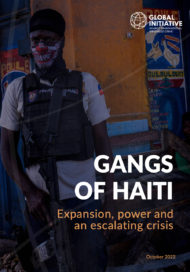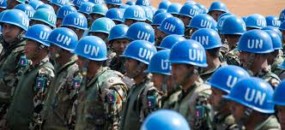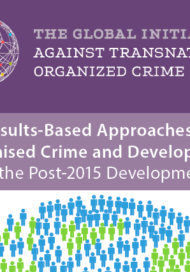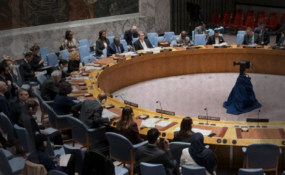Posted on 25 Jan 2024
In October 2023, the United Nations Security Council (UNSC) adopted a resolution authorizing a non-UN multinational security support (MSS) mission in Haiti. After discussions, Kenya volunteered to lead the security operation, proposing a deployment of Kenyan police officers to support Haiti’s police in addressing gang violence and re-establishing security.
The October resolution came after the UNSC approved a sanctions regime for Haiti in 2022, with sanctions being imposed on key gang leaders, businessmen and politicians. The sanctions have been supplemented by unilateral designations issued by Canada, the US and the European Union. Further UN sanctions were imposed in December 2023 as preparations accelerated for the MSS.
However, in October 2023, the High Court of Kenya in Nairobi temporarily blocked Kenya’s proposed police deployment following a petition by Ekuru Aukot, a former presidential candidate and leader of opposition party Thirdway Alliance, who argued that it was unconstitutional. According to Aukot, the law provides for the deployment of only military personnel, and even in such a case the public must be consulted. A final decision on whether the deployment can proceed is expected in the High Court on 26 January 2024.
Analysts believe that, whatever the court decision, it is likely to be appealed by either party. Two higher legal avenues – the Appeal Court and Supreme Court – exist for recourse.[1] However, even if there is a legal battle, Kenya’s Chief Justice may find herself under international pressure to expedite the case in a context of growing instability and fragility in Haiti.
Ready for deployment
As the country awaits the court decision, Kenya’s eagerness and readiness to deploy have become evident over the months. Firstly, the cabinet and parliament have approved and ratified preparations for the deployment. Secondly, Kenya, Haiti, the United States and Jamaica held a joint pre-planning conference in which Kenya was commended for setting the preparations in motion and preparing the mission’s requisite documents, including the pre-deployment training curriculum, the concept of operations and protocol around discipline and use of force.
Kenyan authorities have also held discussions with Haiti’s police chief, Frantz Elbe, and criminal investigations director, Frédéric Leconte, in Nairobi. Meanwhile, in December 2023, Kenyan and US authorities met with Ariel Henry, the Haitian acting prime minister. This was the third visit to Haiti by a Kenyan delegation since September 2023. Media sources have indicated that Kenyan troops have already undergone training and vetting, and are ready to be deployed.
The multilateral engagement points at the seriousness with which Kenya treats this mission. Early preparation is crucial, given Haiti’s crumbling security infrastructure, where some 200 gangs control an estimated 80% of the country capital, Port-au-Prince. A UN forthcoming report indicates that in 2023, over 4 789 people were murdered, 1 698 injured and 2 490 kidnapped, with a projected 2023 homicide rate of 40.9 per 100 000, more than double the 2022 rate. The number of police officers deployed in Haiti to deal with this level of violence is woefully inadequate.
Risks
The seriousness of the situation, coupled with controversial past experiences with peacekeeping missions globally, suggests that the deployment will be closely scrutinized for evidence of success or failure, and it is likely to determine how the international community responds to emergency situations elsewhere.
Intervention by the UN in Haiti is not new: this would be the third initiative over the last three decades. However, the current mission is very different, both for Haiti and for international responses to organized crime more broadly. Previous UN involvement in Haiti has been triggered by political crises, worsening insecurity and to coordinate relief following natural disasters.
In contrast, the proposed intervention has been motivated by, and focuses on, criminal gangs as the main threat to peace and security. This reflects substantial shifts in gangs’ power, structure and capacity for criminal governance. Although the UN Stabilization Mission in Haiti (which ran from 2004 to 2017) did engage in counter-gang operations, this was only after the mission had been in place for several years, and even then they were intermittent.
Kenyan President William Ruto described the security operation as a ‘mission of humanity’, while a cabinet secretary said the deployment stands to enhance Kenya’s reputation as a responsible and reliable nation: ‘We are involved because contributing to regional responsibility and international solidarity is not just a choice for us. It is a duty,’ said the cabinet secretary. Under Ruto, Kenya is reported to be ‘reorienting its foreign policy in Africa’ and beyond, in its diaspora regions, seeking to play a more active leadership role in the Global South.
However, others are critical about Kenya’s involvement in this risky mission. Before the October High Court ruling, a Kenyan senator warned: ‘This Haiti mission is a misadventure. We are sending our boys and girls to be killed. They’ll come back in caskets.’ The former defence minister also urged caution. In fact, Kenyan authorities remain tight-lipped over the Haitian operation, and this has caused anxiety in Kenya, where the public are sceptical and want to know what plans there are to ensure the safety of police officers during deployment and whether the police force is capable of undertaking such a dangerous mission. It is intended that the multilateral force will support the Haitian police in their anti-gang operations by increasing capacity through planning and conducting joint security operations, providing safe access to humanitarian aid and reinforcing local security. The Kenyan police force has in the past been deployed in emergency situations, including Darfur, but for the purposes of training, not peacekeeping. The Haiti deployment is therefore likely to be a test for them, despite their experience in operations against urban street gangs at home.
International Crisis Group has voiced concerns about the numerous challenges the multinational mission will face in Haiti, including links between Haitian police, politicians and the gangs in a context of ‘urban warfare’.
Finally, the unintended harms of the multilateral mission and the protection of civilians from further human rights violations, particularly gender-based violence, need to be taken into account. Establishing and implementing human rights accountability mechanisms will be crucial to preventing such risks.
Besides the risks undertaken by this bold operation, another potential sticking point is whether the international community is willing to fund the costly deployment. A statement following the 14–15 December 2023 joint pre-planning conference reads: ‘We urge the international community to provide robust financial contributions, equipment, personnel, and other logistical support that are flexible and accessible, all of which are critical to achieving the (mission’s) mandate. The (UN) is establishing a Trust Fund to receive donor contributions.’
Under Kenya’s terms, the country seeks US$237.55 million for the deployment, plus equipment. The US has pledged US$100 million. It is still by no means clear whether sufficient funding for personnel and logistics will be forthcoming.
A court decision on 26 January in favour of the deployment would be another stamp of approval for Kenya’s reputation as a key partner in peace operations, and more generally as a major international player. However, what is not known yet is the parameters under which the joint operations would take place, or how the deployment would comply with human rights and international standards. To date, neither the mission, the UN Security Council nor the Haitian government have presented a public plan or strategy for the intervention, either for short-term engagement on the ground or for a long-term political solution.
As gang-related criminality continues to destabilize peace and security in Haiti, much still hangs in the balance until the court makes its ruling.



